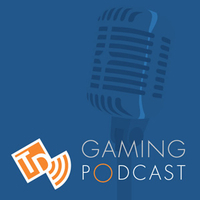 Sony Computer Entertainment Europe has made some leadership changes in response to their in-ability to get things going in the sales department of the PlayStation 3. Gamer’s continue to refuse to believe the PlayStation 3 is in a bad situation by explaining how badly Microsoft’s Xbox 360 is doing in Japan and Europe compared to the Sony console. And, of course, the Wii isn’t competition to Sony.
Sony Computer Entertainment Europe has made some leadership changes in response to their in-ability to get things going in the sales department of the PlayStation 3. Gamer’s continue to refuse to believe the PlayStation 3 is in a bad situation by explaining how badly Microsoft’s Xbox 360 is doing in Japan and Europe compared to the Sony console. And, of course, the Wii isn’t competition to Sony.
“Andrew House, Chief Marketing Officer and Group Executive of Sony Corporation, has been named President, Chief Executive Officer (CEO) and Co-Chief Operating Officer (Co-COO) of Sony Computer Entertainment Europe (SCEE) as of May 1, 2009.” (smarthouse.au)
We’ve been told this is the year of the PS3, this is when they bring it all together. Nintendo’s losing some of their grip on the industry with slower sales, even in Japan. The economy isn’t playing nice with any of the consoles and sales continue to drop, reportedly 17% in March compared to last years numbers.
Australia isn’t proving to be any help to Sony, “for example in Australia a consumer can now buy the Xbox 360 for $299 and a separate Blu ray player and DVD upscale player for $199. Combined this is $200 under the recommended retail price for a Sony PS3.”
Here in the United States, we’ve bought more Wii balance boards than PlayStation 3 consoles. One can argue that the Wii is a novelty system but that really casts a dark shadow on the PlayStation 3. The PS3 is being beat out by a novelty item? Can the new SCEE management change the direction of Sony?

 Voice Actor ‘Michael Hollick’ won’t be the focus of
Voice Actor ‘Michael Hollick’ won’t be the focus of  Sony Computer Entertainment Europe has made some leadership changes in response to their in-ability to get things going in the sales department of the PlayStation 3. Gamer’s continue to refuse to believe the PlayStation 3 is in a bad situation by explaining how badly Microsoft’s Xbox 360 is doing in Japan and Europe compared to the Sony console. And, of course, the Wii isn’t competition to Sony.
Sony Computer Entertainment Europe has made some leadership changes in response to their in-ability to get things going in the sales department of the PlayStation 3. Gamer’s continue to refuse to believe the PlayStation 3 is in a bad situation by explaining how badly Microsoft’s Xbox 360 is doing in Japan and Europe compared to the Sony console. And, of course, the Wii isn’t competition to Sony.